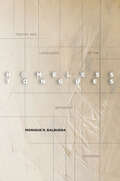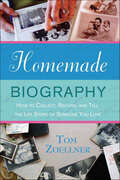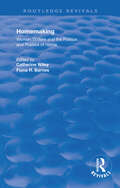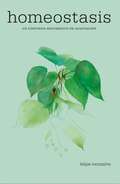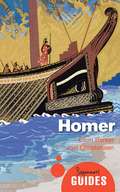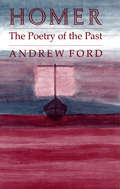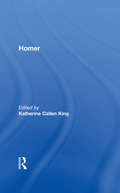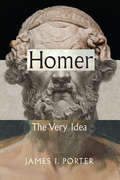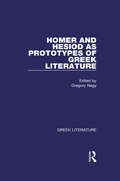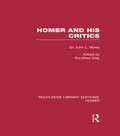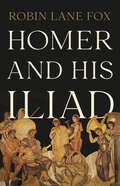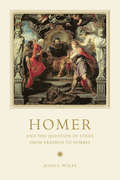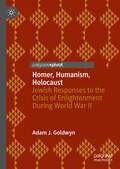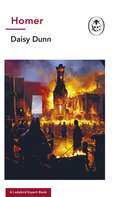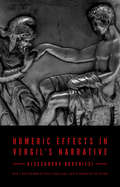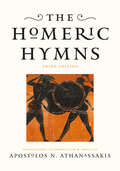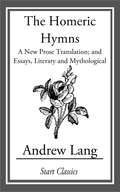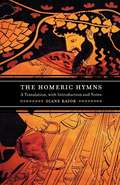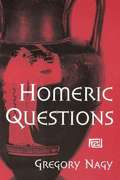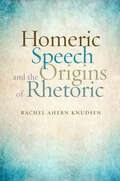- Table View
- List View
Homeless Tongues: Poetry and Languages of the Sephardic Diaspora
by Monique BalbuenaThis book examines a group of multicultural Jewish poets to address the issue of multilingualism within a context of minor languages and literatures, nationalism, and diaspora. It introduces three writers working in minor or threatened languages who challenge the usual consensus of Jewish literature: Algerian Sadia Lévy, Israeli Margalit Matitiahu, and Argentine Juan Gelman. Each of them--Lévy in French and Hebrew, Matitiahu in Hebrew and Ladino, and Gelman in Spanish and Ladino--expresses a hybrid or composite Sephardic identity through a strategic choice of competing languages and intertexts. Monique R. Balbuena's close literary readings of their works, which are mostly unknown in the United States, are strongly grounded in their social and historical context. Her focus on contemporary rather than classic Ladino poetry and her argument for the inclusion of Sephardic production in the canon of Jewish literature make Homeless Tongues a timely and unusual intervention.
Homemade Biography: How to Collect, Record, and Tell the Life Story of Someone You Love
by Tom ZoellnerHow well do you really know the older people in your family? And how will you make sure their stories will be preserved for generations to come? Homemade Biography is a fun and practical guide to recording a relative's story so it will never be forgotten. New York Times bestselling author Tom Zoellner, who wrote his own grandmother's biography, draws on years of interviewing and writing experience to provide: - More than 300 questions designed to provoke vivid responses Case studies of successful family biographies - A revolutionary technique for writing with grace and energy - Ways of finding a connective theme buried in a jumble of facts - Strategies for dealing with sensitive topics- Professional methods of editing for quality and accuracy - Tips for making your relative's story a part of the permanent historical recordMost of us think about bringing a tape recorder or a notebook to a visit with an older relative, but few actually do it. This clear-eyed manual gives you all the expertise you'll need to finish what could be one of the most fulfilling conversations you'll ever have.
Homemaking: Women Writers and the Politics and Poetics of Home
by Catherine Wiley Fiona R. BarnesFirst published in 1996. The present volume, Homemaking: Women Writers and the Politics and Poetics of Home, enters the critical discourse on gender by way of two of its most pressing issues: the politics of women’s locations at the end of the twentieth century, and the division of experience into public and private. That the emergence of systematic feminist thought in the west coincided with the invention of "private life" should not surprise us. Feminist thinkers from Mary Wollstonecroft on were quick to realize that the designation of the public and the private, male and female, was key to the subordination of women.
Homeostasis: Un continuo movimiento de adaptacion
by Felipe MonsalveUn libro de entrevistas a varias personas notables que lograron armonía y bienestar en su vida de una manera fuera de lo común. Humberto Maturana, Manfred Max-Neef, Douglas Tompkins, Gastón Soublette, Sergio Larraín, Adriana Hoffmann, son algunos de los 23 entrevistados que contiene este libro y en el que cuentan la razón por la cual se alejaron del sistema, su amor por la naturaleza y cómo alcanzaron la armonía y el bienestar en sus vidas. Entrevistas en primera persona, donde nos aconsejan sobre la importancia de alejarse del ego, habitar en paz con el otro y donde el diálogo fecundo puede lograr los más importantes objetivos. Homeostasis, es decir la capacidad del organismo de establecer el equilibrio, es un libro honesto, crítico y sobre todo una serie de consejos de personas notables, que han sabido hacer de su vida algo distinto y único.
Homer
by A. M. BowieThe second part of the Odyssey takes epic in new directions, giving significant roles to people of 'lower status' and their way of life: epic notions of the primacy of the aristocrat and the achievements of the Trojan War are submitted to scrutiny. Books XIII and XIV contain some of the subtlest human exchanges in the poem, as Athena and Odysseus spar with each other and Odysseus tests the quiet patience of his swineherd Eumaeus. The principal themes and narrative structures, especially of disguise and recognition, which the second part uses with remarkable economy, are established here. The Introduction also includes a detailed historical account of the Homeric dialect, as well as sections on metre and the text itself. The Commentary on the Greek text pays particular attention to the exposition of unfamiliar linguistic forms and constructions. The literary parts of the Introduction and the Commentary are accessible to all.
Homer: A Beginner's Guide (Beginner's Guides)
by Joel Christensen Elton Te BakerWidely revered as the father of Western literature, Homer was the author of The Iliad and The Odyssey, the epic poems which immortalized such names as Cyclops, Menelaus, and Achilles, and inspired such films as the Brad Pitt blockbuster Troy. In this vivid introduction, Elton Barker and Joel Christensen celebrate the complexity, innovation and sheer excitement of Homer's two great works, and investigate the controversy surrounding the man behind the myths - asking who he was and whether he even existed.From soap operas to Salman Rushdie, the authors also highlight just how much we owe Homer and why he has been so influential. Perfect for new readers of the great poet but full of insights that will delight Homeric experts, it will inspire you to discover (or rediscover) his epic masterpieces first-hand.
Homer: The Poetry of the Past
by Andrew FordAndrew Ford here addresses, in a manner both engaging and richly informed, the perennial questions of what poetry is, how it came to be, and what it is for. Focusing on the critical moment in Western literature when the heroic tales of the Greek oral tradition began to be preserved in writing, he examines these questions in the light of Homeric poetry. Through fresh readings of the Iliad and the Odyssey, and referring to other early epics as well, Ford deepens our understanding of what poetry was at a time before written texts, before a developed sense of authorship, and before the existence of institutionalized criticism.Placing what is known about Homer's art in the wider context of Homer's world, Ford traces the effects of the oral tradition upon the development of the epic and addresses such issues as the sources of the poet's inspiration and the generic constraints upon epic composition. After exploring Homer's poetic vocabulary and his fictional and mythical representations of the art of singing, Ford reconstructs an idea of poetry much different from that put forth by previous interpreters. Arguing that Homer grounds his project in religious rather than literary or historical terms, he concludes that archaic poetry claims to give a uniquely transparent and immediate rendering of the past.Homer: The Poetry of the Past will be stimulating and enjoyable reading for anyone interested in the traditions of poetry, as well as for students and scholars in the fields of classics, literary theory and literary history, and intellectual history.
Homer
by Barbara Graziosi Johannes HauboldThe sixth book of the Iliad includes some of the most memorable and best-loved episodes in the whole poem: it holds meaning and interest for many different people, not just students of ancient Greek. Book 6 describes how Glaukos and Diomedes, though fighting on opposite sides, recognise an ancient bond of hospitality and exchange gifts on the battlefield. It then follows Hector as he enters the city of Troy and meets the most important people in his life: his mother, Helen and Paris, and finally his wife and baby son. It is above all through the loving and fraught encounter between Hector and Andromache that Homer exposes the horror of war. This edition is suitable for undergraduates at all levels, and students in the upper forms of schools. The Introduction requires no knowledge of Greek and is intended for all readers interested in Homer.
Homer
by Irene J. F. De JongBook XXII recounts the climax of the Iliad: the fatal encounter between the main defender of Troy and the greatest warrior of the Greeks, which results in the death of Hector and Achilles' revenge for the death of his friend Patroclus. At the same time it adumbrates Achilles' own death and the fall of Troy. This edition will help students and scholars better appreciate this key part of the epic poem. The introduction summarises central debates in Homeric scholarship, such as the circumstances of composition and the literary interpretation of an oral poem, and offers synoptic discussions of the structure of the Iliad, the role of the narrator, similes and epithets. There is a separate section on language, which provides a compact list of the most frequent Homeric characteristics. The commentary offers up-to-date linguistic guidance, and elucidates narrative techniques, typical elements and central themes.
Homer: Paradigms Of The War Hero From Homer To The Middle Ages
by Katherine Callen KingFirst Published in 1994. Routledge is an imprint of Taylor & Francis, an informa company.
Homer: The Very Idea
by James I. PorterThe story of our ongoing fascination with Homer, the man and the myth. Homer, the great poet of the Iliad and the Odyssey, is revered as a cultural icon of antiquity and a figure of lasting influence. But his identity is shrouded in questions about who he was, when he lived, and whether he was an actual person, a myth, or merely a shared idea. Rather than attempting to solve the mystery of this character, James I. Porter explores the sources of Homer’s mystique and their impact since the first recorded mentions of Homer in ancient Greece. Homer: The Very Idea considers Homer not as a man, but as a cultural invention nearly as distinctive and important as the poems attributed to him, following the cultural history of an idea and of the obsession that is reborn every time Homer is imagined. Offering novel readings of texts and objects, the book follows the very idea of Homer from his earliest mentions to his most recent imaginings in literature, criticism, philosophy, visual art, and classical archaeology.
Homer and Hesiod as Prototypes of Greek Literature: Greek Literature (Greek Literature Ser. #Vol. 6)
by Gregory NagyThis volume is available on its own or as part of the seven volume set, Greek Literature. This collection reprints in facsimile the most influential scholarship published in this field during the twentieth century. For a complete list of the volume titles in this set, see the listing for Greek Literature [ISBN 0-8153-3681-0].
Homer and His Critics (Routledge Library Editions: Homer)
by John MyresHere is presented a succinct and insightful account of the reception of the Iliad and Odyssey from antiquity to the mid-twentieth century. The overall result is less a systematic history than a series of independent studies differing in scale and focus, the chapter on Gladstone being the most comprehensive and detailed. First published in 1958. The author gives greatest attention to those who made active use of Homer rather than passive, even if admiring, readers: Virgil because he wrote the Aeneid, Gladstone because he brought him to prominence in Oxford education, Wood because he sought out the geography and Schliemann because he dug for the kings. The emphasis is thus placed less on the purely academic critic than on the traveller and the innovative amateur. A valuable contribution to a subject of perennial fascination, this will be of interest to all students and teachers of the classics.
Homer and His Iliad
by Robin Lane FoxA &“compelling and impressive&” (Sunday Times) reassessment of the Iliad, uncovering how the poem was written and why it remains enduringly powerful The Iliad is the world&’s greatest epic poem—heroic battle and divine fate set against the Trojan War. Its beauty and profound bleakness are intensely moving, but great questions remain: Where, how, and when was it composed and why does it endure? Robin Lane Fox addresses these questions, drawing on a lifelong love and engagement with the poem. He argues for a place, a date, and a method for its composition—subjects of ongoing controversy—combining the detailed expertise of a historian with a poetic reader&’s sensitivity. Lane Fox considers hallmarks of the poem; its values, implicit and explicit; its characters; its women; its gods; and even its horses. Thousands of readers turn to the Iliad every year. Drawing on fifty years of reading and research, Lane Fox offers us a breathtaking tour of this magnificent text, revealing why the poem has endured for ages.
Homer and the Question of Strife from Erasmus to Hobbes
by Jessica WolfeFrom antiquity through the Renaissance, Homer's epic poems - the Iliad, the Odyssey, and the various mock-epics incorrectly ascribed to him - served as a lens through which readers, translators, and writers interpreted contemporary conflicts. They looked to Homer for wisdom about the danger and the value of strife, embracing his works as a mythographic shorthand with which to describe and interpret the era's intellectual, political, and theological struggles.Homer and the Question of Strife from Erasmus to Hobbes elegantly exposes the ways in which writers and thinkers as varied as Erasmus, Rabelais, Spenser, Milton, and Hobbes presented Homer as a great champion of conflict or its most eloquent critic. Jessica Wolfe weaves together an exceptional range of sources, including manuscript commentaries, early modern marginalia, philosophical and political treatises, and the visual arts. Wolfe's transnational and multilingual study is a landmark work in the study of classical reception that has a great deal to offer to anyone examining the literary, political, and intellectual life of early modern Europe.
Homer, Humanism, Holocaust: Jewish Responses to the Crisis of Enlightenment During World War II
by Adam J. GoldwynThis book examines how Jewish intellectuals during and after the Second World War reinterpreted Homer’s epics, the Iliad and the Odyssey, in light of their own wartime experiences, drawing a parallel between the ancient Greek genocide of the Trojans and the Nazi genocide of the Jews. The wartime writings of Theodore Adorno, Hannah Arendt, Erich Auerbach, Rachel Bespaloff, Hermann Broch, Max Horkheimer, Primo Levi, and others were attempts both to understand the collapse of European civilization and the Enlightenment through critiques of their foundational texts and to imagine the place of the Homeric epics in a new post-War humanism. The book thus also explores the reception of these writers, analyzing how Jewish child-survivors like Geoffrey Hartman and Hélène Cixous and writers of the post-Holocaust generation like Daniel Mendelsohn continued to read the epics as narratives of grief, trauma, and woundedness into the twenty-first century..
Homer in Stone
by David PetrainThe Tabulae Iliacae are a group of carved stone plaques created in the context of early Imperial Rome that use miniature images and text to retell stories from Greek myth and history - chief among them Homer's Iliad and the fall of Troy. In this book, Professor Petrain moves beyond the narrow focus on the literary and iconographic sources of the Tabulae that has characterized earlier scholarship. Drawing on ancient and modern theories of narrative, he explores instead how the tablets transfer the Troy saga across both medium and culture as they create a system of visual storytelling that relies on the values and viewing habits of Roman viewers. The book comprehensively situates the tablets in the urban fabric of Augustan Rome. New photographs of the tablets, together with re-editions and translations of key inscriptions, offer a new, clearer view of these remarkable documents of the Roman appropriation of Greek epic.
Homer: A Ladybird Expert Book (The Ladybird Expert Series #38)
by Daisy DunnPart of the ALL-NEW LADYBIRD EXPERT SERIES'Brought evocatively to life' HISTORY REVEALED- Was there really a Trojan War?- What makes a Homeric hero?- How did Odysseus defeat the Cyclops?IMMERSE yourself in the epic adventures of the Ancient Greek gods and heroes. Filled with daring feats, battles and terrifying monsters, the poems and the stories told within them raise complex questions about fate, death and forgiveness that are still debated today.MIGHTY HEROES AND MEDDLING GODSWritten by the winner of the Classical Association Prize 2020, Daisy Dunn's Homer is a fascinating introduction to these ancient stories and their truly timeless themes.
Homer on the Gods and Human Virtue
by Peter J. AhrensdorfThis book seeks to restore Homer to his rightful place among the principal figures in the history of political and moral philosophy. Through this fresh and provocative analysis of the Iliad and the Odyssey, Peter J. Ahrensdorf examines Homer's understanding of the best life, the nature of the divine, and the nature of human excellence. According to Ahrensdorf, Homer teaches that human greatness eclipses that of the gods, that the contemplative and compassionate singer ultimately surpasses the heroic warrior in grandeur, and that it is the courageously questioning Achilles, not the loyal Hector or even the wily Odysseus, who comes closest to the humane wisdom of Homer himself. Thanks to Homer, two of the distinctive features of Greek civilization are its extraordinary celebration of human excellence, as can be seen in Greek athletics, sculpture, and nudity, and its singular questioning of the divine, as can be seen in Greek philosophy.
Homeric Effects in Vergil's Narrative
by Alessandro Barchiesi Ilaria Marchesi Philip HardieThe study of Homeric imitations in Vergil has one of the longest traditions in Western culture, starting from the very moment the Aeneid was circulated. Homeric Effects in Vergil's Narrative is the first English translation of one of the most important and influential modern studies in this tradition. In this revised and expanded edition, Alessandro Barchiesi advances innovative approaches even as he recuperates significant earlier interpretations, from Servius to G. N. Knauer.Approaching Homeric allusions in the Aeneid as "narrative effects" rather than glimpses of the creative mind of the author at work, Homeric Effects in Vergil's Narrative demonstrates how these allusions generate hesitations and questions, as well as insights and guidance, and how they participate in the creation of narrative meaning. The book also examines how layers of competing interpretations in Homer are relevant to the Aeneid, revealing again the richness of the Homeric tradition as a component of meaning in the Aeneid. Finally, Homeric Effects in Vergil's Narrative goes beyond previous studies of the Aeneid by distinguishing between two forms of Homeric intertextuality: reusing a text as an individual model or as a generic matrix. For this edition, a new chapter has been added, and in a new afterword the author puts the book in the context of changes in the study of Latin literature and intertextuality. A masterful work of classical scholarship, Homeric Effects in Vergil's Narrative also has valuable insights for the wider study of imitation, allusion, intertextuality, epic, and literary theory.
The Homeric Hymns
by Apostolos N. AthanassakisA rich source for students of Greek mythology and literature, the Homeric Hymns are also fine poetry. Attributed by the ancients to Homer, these prooimia, or preludes, were actually composed by various poets over centuries. They were performed at religious festivals as entertainment meant to stir up enthusiasm for far more ambitious compositions that followed them, namely the Iliad and Odyssey. Each of the thirty-three poems is written in honor of a Greek god or goddess. Together, the hymns provide a fascinating view into the ancients' view of deities. In this long-awaited third edition of his acclaimed translations of the hymns, Apostolos Athanassakis preserves the vigor and the magic of the ancient text while modernizing traditional renditions of certain epithets and formulaic phrases. He avoids lengthening or truncating lines, thereby crafting a symmetrical text, and makes an effort to keep to an iambic flow without sacrificing accuracy. Athanassakis enhances his classic work with a new index of names and topics, updated bibliography, revised genealogical charts, and careful and selective changes in the translations themselves. An expanded introduction addresses ancient reception of the hymns. Numerous additions to the notes, reflecting over twenty-five years of scholarship, draw on modern anthropological and archaeological research to explore prominent themes and religious syncretism within the poems. These materials all enrich the reader's experience of these ancient and influential poems.A perennial classroom favorite, The Homeric Hymns embodies thrilling new visions of antiquity.
The Homeric Hymns: A New Prose Translation; and Essays, Literary and Mythological
by Andrew LangAndrew Lang (1844-1912) was a prolific Scots man of letters, a poet, novelist, literary critic and contributor to anthropology. He now is best known as the collector of folk and fairy tales. He was educated at the Edinburgh Academy, St Andrews University and at Balliol College, Oxford. As a journalist, poet, critic and historian, he soon made a reputation as one of the ablest and most versatile writers of the day. Lang was one of the founders of the study of "Psychical Research," and his other writings on anthropology include The Book of Dreams and Ghosts (1897), Magic and Religion (1901) and The Secret of the Totem (1905). He was a Homeric scholar of conservative views. Other works include Homer and the Epic (1893); a prose translation of The Homeric Hymns (1899), with literary and mythological essays in which he draws parallels between Greek myths and other mythologies; and Homer and his Age (1906). He also wrote Ballades in Blue China (1880) and Rhymes la Mode (1884).
The Homeric Hymns
by Diane RayorThe Homeric Hymns have survived for two and a half millennia because of their captivating stories, beautiful language, and religious significance. Well before the advent of writing in Greece, they were performed by traveling bards at religious events, competitions, banquets, and festivals. Thirty-four poems that invoke and celebrate the gods of ancient Greece, the Homeric Hymns raise questions that humanity still struggles with--questions about our place among others and in the world. "Homeric" because they were composed in the same meter, dialect, and style as Homer's Iliad and Odyssey, these "hymns" were created to be sung aloud. In this superb translation by Diane Rayor, which deftly combines accuracy and poetry, the ancient music of the hymns comes alive for the modern reader. Here is the birth of Apollo, god of prophecy, healing, and music and founder of Delphi, the most famous oracular shrine in ancient Greece. Here is Zeus, inflicting upon Aphrodite her own mighty power to cause gods to mate with humans, and here is Demeter rescuing her daughter Persephone from the underworld and initiating the rites of the Eleusinian Mysteries. With her introduction and notes, Rayor places the hymns in their historical and aesthetic context, providing all the information needed to read, interpret, and fully appreciate these literary windows on an ancient world. As introductions to the Greek gods, entrancing stories, exquisite poetry, and early literary records of key religious rituals and sites, The Homeric Hymns should be read by any student of mythology, classical literature, ancient religion, women in antiquity, or the Greek language.
Homeric Questions
by Gregory NagyThe "Homeric Question" has vexed Classicists for generations. Was the author of the Iliad and the Odyssey a single individual who created the poems at a particular moment in history? Or does the name "Homer" hide the shaping influence of the epic tradition during a long period of oral composition and transmission?<P><P>In this innovative investigation, Gregory Nagy applies the insights of comparative linguistics and anthropology to offer a new historical model for understanding how, when, where, and why the Iliad and the Odyssey were ultimately preserved as written texts that could be handed down over two millennia. His model draws on the comparative evidence provided by living oral epic traditions, in which each performance of a song often involves a recomposition of the narrative.
Homeric Speech and the Origins of Rhetoric
by Rachel Ahern KnudsenKnudsen argues that Homeric epics are the locus for the origins of rhetoric.Traditionally, Homer's epics have been the domain of scholars and students interested in ancient Greek poetry, and Aristotle's rhetorical theory has been the domain of those interested in ancient rhetoric. Rachel Ahern Knudsen believes that this academic distinction between poetry and rhetoric should be challenged. Based on a close analysis of persuasive speeches in the Iliad, Knudsen argues that Homeric poetry displays a systematic and technical concept of rhetoric and that many Iliadic speakers in fact employ the rhetorical techniques put forward by Aristotle.Rhetoric, in its earliest formulation in ancient Greece, was conceived as the power to change a listener’s actions or attitudes through words—particularly through persuasive techniques and argumentation. Rhetoric was thus a "technical" discipline in the ancient Greek world, a craft (technê) that was rule-governed, learned, and taught. This technical understanding of rhetoric can be traced back to the works of Plato and Aristotle, which provide the earliest formal explanations of rhetoric. But do such explanations constitute the true origins of rhetoric as an identifiable, systematic practice? If not, where does a technique-driven rhetoric first appear in literary and social history? Perhaps the answer is in Homeric epics. Homeric Speech and the Origins of Rhetoric demonstrates a remarkable congruence between the rhetorical techniques used by Iliadic speakers and those collected in Aristotle's seminal treatise on rhetoric. Knudsen's claim has implications for the fields of both Homeric poetry and the history of rhetoric. In the former field, it refines and extends previous scholarship on direct speech in Homer by identifying a new dimension within Homeric speech—namely, the consistent deployment of well-defined rhetorical arguments and techniques. In the latter field, it challenges the traditional account of the development of rhetoric, probing the boundaries that currently demarcate its origins, history, and relationship to poetry.
